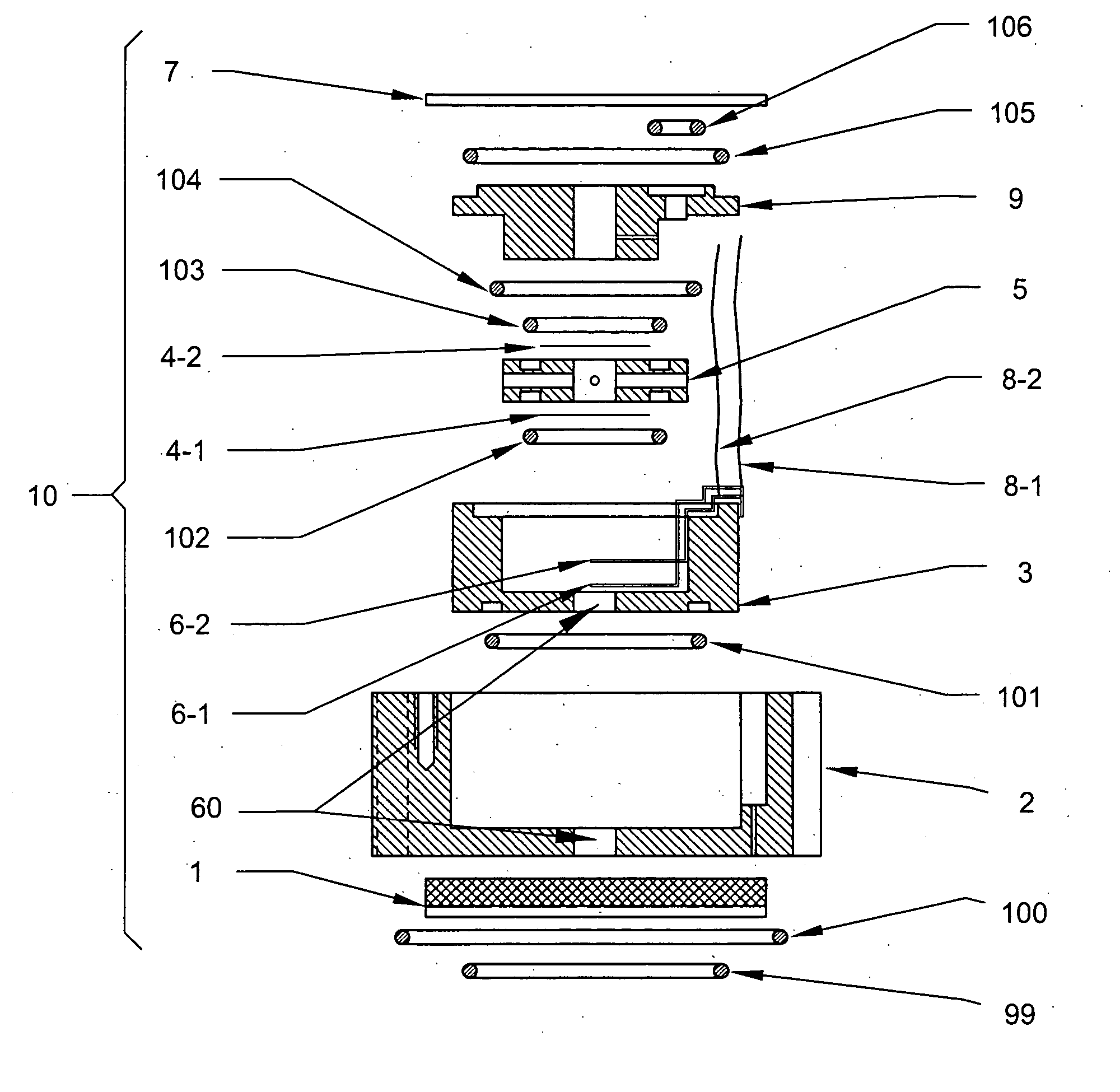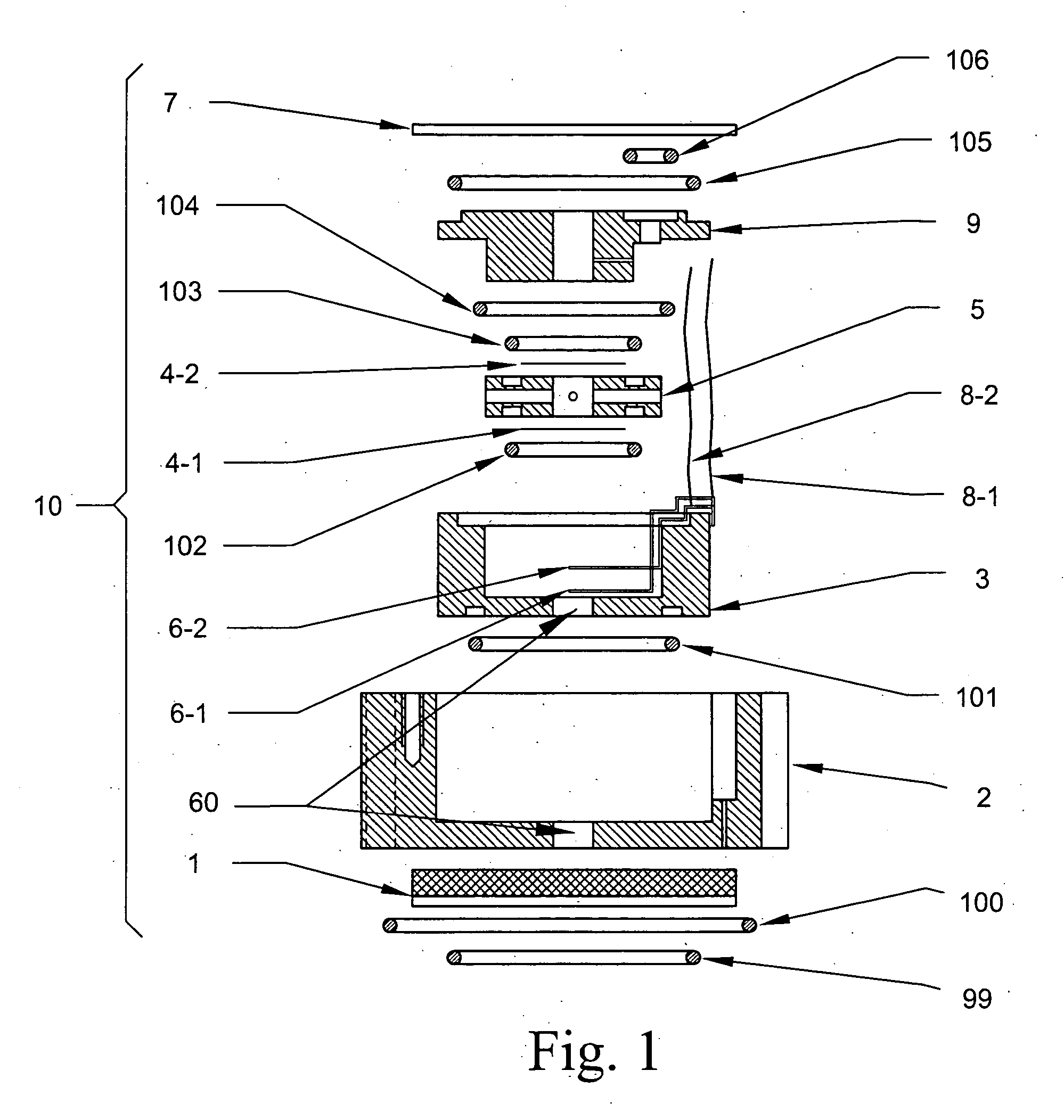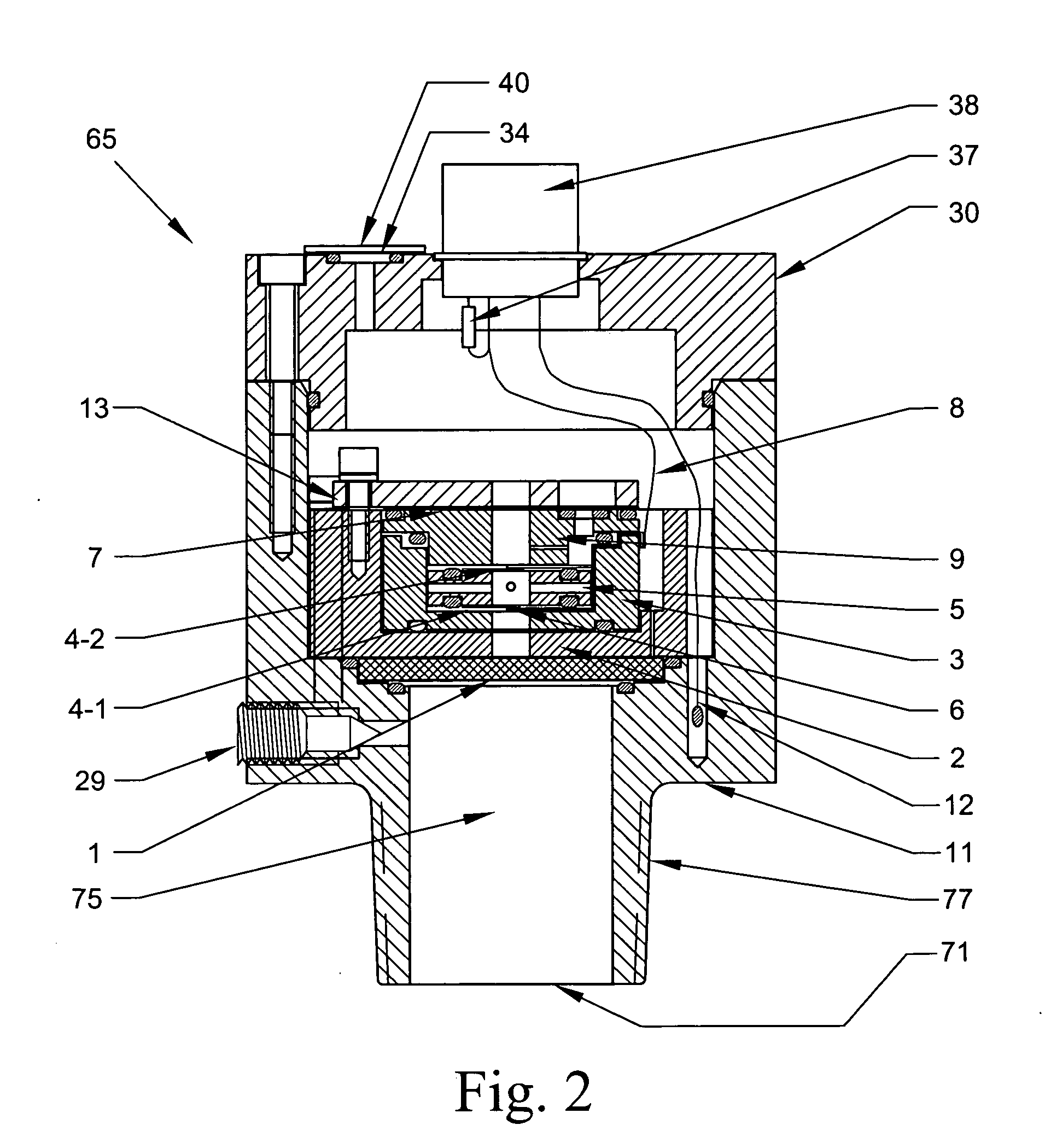Laminated membranes for diffusion limited gas sensors resistant to pressure variations
a gas sensor and diffusion limit technology, applied in the field of laminated membranes for diffusion limited gas sensors, can solve the problems of sensor failure, vacuum occurrence, damage to these polymer membranes,
- Summary
- Abstract
- Description
- Claims
- Application Information
AI Technical Summary
Benefits of technology
Problems solved by technology
Method used
Image
Examples
Embodiment Construction
[0014] Referring to FIGS. 1 and 2, these figures illustrate an example of a compact fuel cell sensor device 10 according to the present invention, for being connected to an aperture provided into one of the walls of a receptacle containing, for example, a dielectric fluid. In FIG. 1 there is illustrated a detailed exploded view of a micro-fuel cell sensor assembly 10 for measuring partial hydrogen pressure in dielectric oil. FIG. 2 illustrates a cross-section of an assembled sensor apparatus 65. The physical assembly of the sensor in this embodiment is similar as the gas sensors disclosed in Babes-Dornea '296 and '257. Although the exemplary embodiment is intended for measuring dissolved hydrogen in dielectric oil, this invention can also be utilized to measure other dissolved gasses in fluid systems other than the one presented herein.
[0015] The fuel cell sensor device 65 has a hollow probe base body 11 comprising a holding element 11 and a projection element 71. The holding eleme...
PUM
| Property | Measurement | Unit |
|---|---|---|
| thickness | aaaaa | aaaaa |
| thickness | aaaaa | aaaaa |
| thickness | aaaaa | aaaaa |
Abstract
Description
Claims
Application Information
 Login to View More
Login to View More - R&D
- Intellectual Property
- Life Sciences
- Materials
- Tech Scout
- Unparalleled Data Quality
- Higher Quality Content
- 60% Fewer Hallucinations
Browse by: Latest US Patents, China's latest patents, Technical Efficacy Thesaurus, Application Domain, Technology Topic, Popular Technical Reports.
© 2025 PatSnap. All rights reserved.Legal|Privacy policy|Modern Slavery Act Transparency Statement|Sitemap|About US| Contact US: help@patsnap.com



